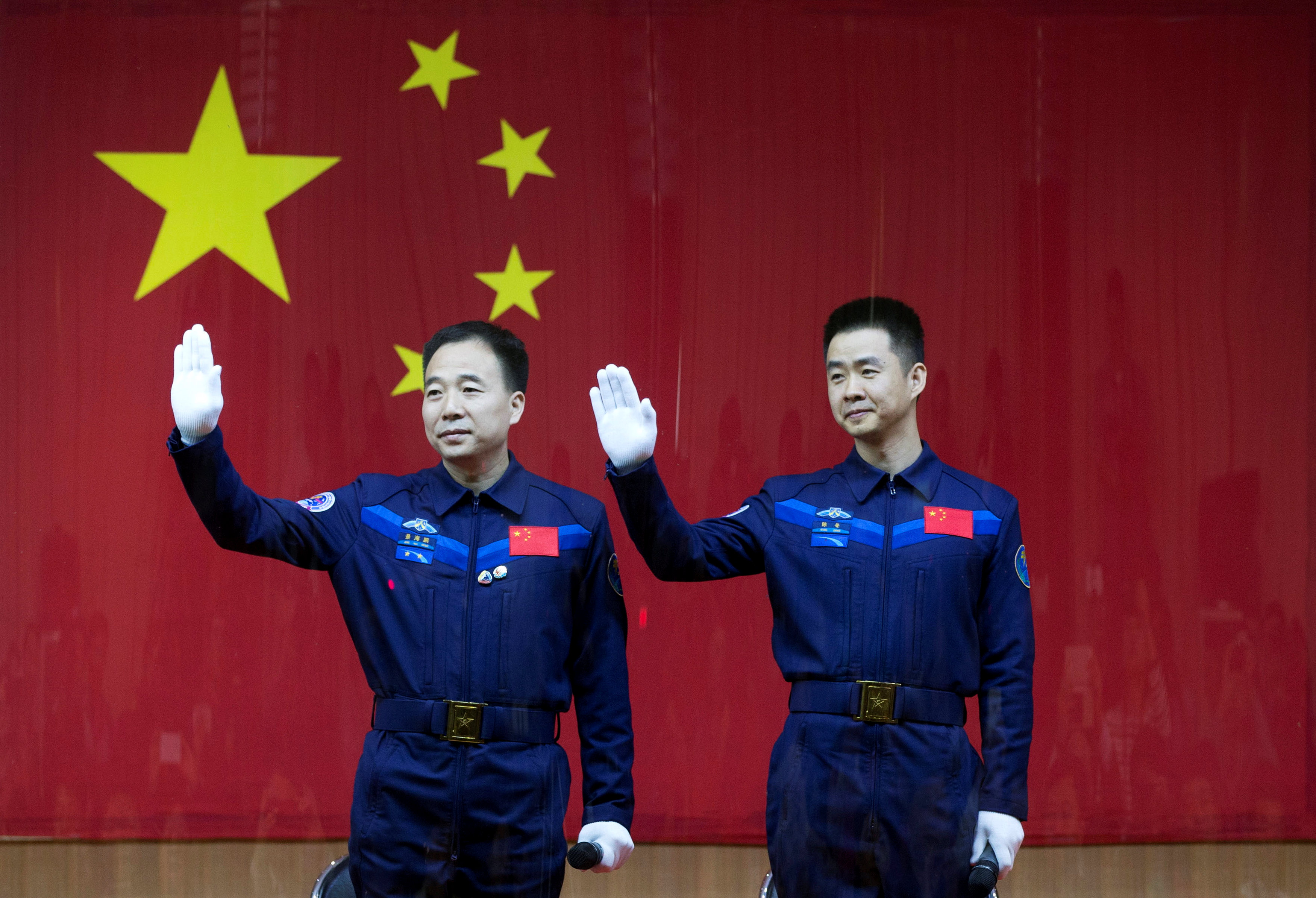Image: Chinese astronauts Jing Haipeng (L) and Chen Dong wave at a news conference before China launches the Shenzhou 11 manned spacecraft, in Jiuquan, China, October 16, 2016.
By Jake Spring and Meng Meng
BEIJING (Reuters) – China will launch a two-man space mission, Shenzhou 11, on Monday, officials with the space program said, taking the country closer to its ambition of setting up a permanent manned space station by 2022.
President Xi Jinping has called for China to establish itself as a space power, and it has tested anti-satellite missiles, in addition to its civilian aims.
China says its space program is for peaceful purposes, but the U.S. Defense Department has highlighted its increasing capabilities, saying it was pursuing activities aimed to prevent adversaries from using space-based assets in a crisis.
After Monday’s launch at 7:30 a.m. (2330 GMT) in the remote northwestern province of Gansu, the astronauts will dock with the Tiangong 2 space laboratory, where they will spend about a month.
“This mission is characterized by its longer duration and more tests,” Chen Dong, the junior astronaut on the mission, told reporters in a televised news conference. “We will focus on improving our ability to handle emergencies in orbit, medical first aid, mutual rescue capabilities and space experiments.”
Shenzhou 11 will be the third space mission for Jing Haipeng, who will command the mission and pass his 50th birthday in space.
The spacecraft, whose name translates as “Divine Vessel”, will also carry three experiments designed by Hong Kong middle school students and selected in a science competition, including one that will take silk worms into space.
China launched its second experimental space lab Tiangong 2, or “Heavenly Palace 2”, last month.
While China to date has focused on near-Earth space exploration, future missions will be bigger and go farther than 400 km (249 miles), said Zhang Yulin, an official with the space program and the Central Military Commission.
The country’s space program will soon move from exploratory testing to normal operations with the launch of the next space station, Xinhua news agency quoted Zhang as saying.
“Then spacecraft launches won’t be like now, one every few years, instead there will be several each year.”
(Reporting by Jake Spring and Meng Meng; Additional reporting by Ben Blanchard; Editing by Clarence Fernandez)
Copyright 2016 Thomson Reuters. Click for Restrictions.


